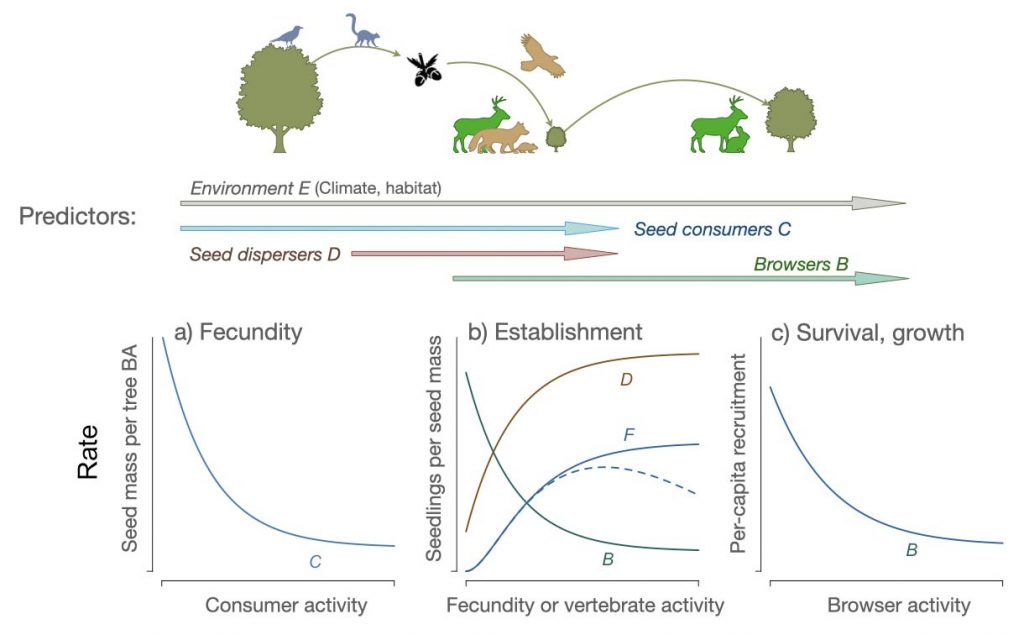New NSF grant: Continent-wide forest recruitment change
A new collaboration to understand forest regeneration and climate change will be led by Jim Clark, in collaboration with University of California Merced, University of California Berkeley, University of Michigan, and the North Carolina Museum of Natural History. The award will involve sampling seed production and wildlife populations across the continental US.
The sustainability of North American forests depends on seed production by trees and the seedlings that must establish the next generation. For most of North America, neither the amounts of seed that are produced, nor how much of that seed survives to become future forests is known. Planning for climate change requires this knowledge to anticipate tree species migrations and its impacts on the birds and mammals that depend on forests for habitat and food. This study combines continental scale tree fecundity estimates with a new generation of monitoring and synthesis methods for integrating tree fecundity, seedling success, and its impacts on animal consumers. The study will quantify current trends across the continent, the changes in forests that are happening now, and the habitat changes that are causing them. [more]

